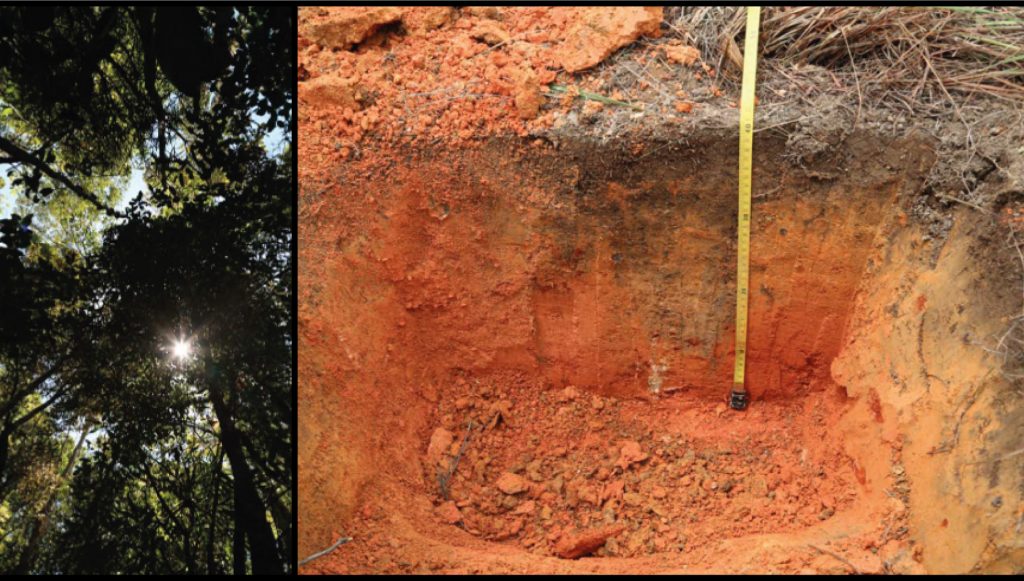Cette publication est également disponible en :
Français
Leanne Phelps left Lausanne for Madagascar where she launched her project « Reconstructing the Holocene savannas of Madagascar: implications for long-term disturbance dynamics and modern human land use » thanks to an Early-Postdoc-Mobility grant.

Leanne explains how her desire to understand human land use and sustainable management issues emerged. After having simultaneously carried out the end of her PhD and set up her project, she aims to decipher the role that human land use plays in changing Malagasy savannas. Her first field trips reinforce her hope of reconciling academic research with the search for practical solutions for field actors.
How did this project of mobility come about?
The idea for my Early Postdoc.Mobility was born at an international conference. There was one scientist in particular whose work I knew could expand my research experience in a very beneficial way… so I sat down with her, and within an hour or so we came up with an exciting preliminary idea for a postdoc project! In the following months I did a lot of reading, reaching out to relevant experts whose work I admired, and honing the project proposal.
What was decisive in the preparation of the application?
The application process for the Early Postdoc.Mobility requires a lot of time and attention. For me, this included copious preliminary investigations and reaching out to a number of experts. All this in a very short period of time, and at the same time as the completion and submission of my PhD thesis. Combined, I found these tasks difficult to accomplish! I was lucky enough to find supportive hosts who are as keen to work with me as I am with them. Their support was essential to put together a successful proposal. This was an invaluable resource for me during the write-up period.
Your project has an important applied part for land management. Can academic research contribute to tackling environmental issues?
It’s very important to me that the research I carry out addresses practical and relevant land management issues. Just a few years ago I was quite sceptical about whether formalized research could really address these issues in an effective manner. However, it became increasingly clear during my PhD that research is ideally suited to address practical issues. So long as it’s designed with them in mind. This is what I wished to do for this first postdoc: to place practical questions at the core of the research aims and plan, and to seek collaborators who have this vision.
How are the first field trips shaping up?
My postdoc project (formally) started about a month ago (Nov 2019) in Madagascar. I just conducted my first field trip in tandem with a group of conservationists and really jump-started my understanding of changes in Malagasy vegetation and the role of human land use. This kind of tandem seems to have two primary benefits (so far): my research is more likely to stay rooted in practical management issues pertaining to both local communities and conservation efforts; and we are able to contribute to local capacity building along the way. Of course, this is only the beginning. The most important part will be to ensure that, in addition to the scientific community, our findings will be effectively communicated and discussed with relevant stakeholders: the local communities, the conservation associations, the governmental authorities… This will require a variety of efforts, but I am confident, given the project’s wide net of collaborators and connections.
Advice for future researchers in Mobility?
Develop a project that really addresses a question you’re invested and interested in, and seek out core collaborators that have the potential to dramatically expand your skill set and network (…and start planning as early as possible!). In the year leading up to the deadline for the Early Postdoc.Mobility I knew that I was interested to apply — especially because of the freedom that it could offer me in addressing my own research topic. But I was unsure whether I should submit a proposal for the upcoming deadline or wait for the next round. Once I had the chance to develop my project in detail, it became clear that I wanted to submit a proposal as soon as possible so that I’d have the chance to apply again if my application was unsuccessful. So, I submitted 3 months before my private defence and submitted the thesis just after submitting this application. I am currently very glad that I went out on a limb and did that.
How do you see the next step after Early-Postdoc-Mobility?
I suspect that the next steps will include an application to the FNS Postdoc Mobility scheme (!) so that I can continue to work on new and relevant aspects of my current project, which I am now very invested in.
Informations
Leave a Reply